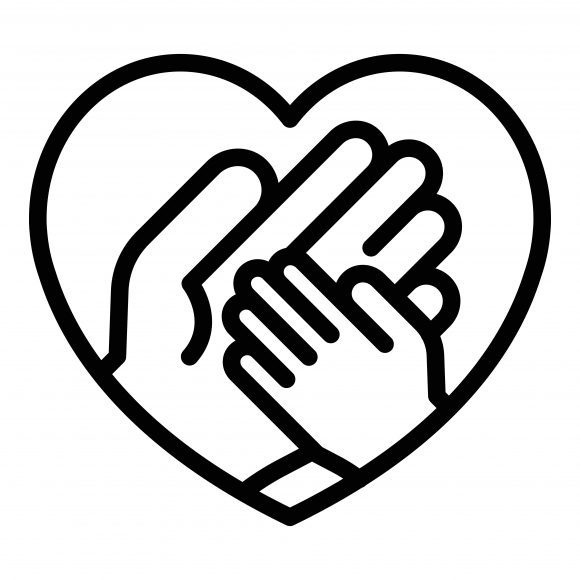I have been a foster mama now for about three and a half years and have heard ALL of the commentary from family, friends, and ‘well-intentioned’ strangers. I honestly think that people want to be helpful. They want to be supportive, and most people are just ignorant and unfamiliar with the difficulties that foster families navigate.
I think like any biological mom, us foster mamas need to hear the same things. We need to hear that we aren’t alone. We need to hear that sometimes things just downright suck – being a parent is hard, plain and simple. We need to be reminded that it is not just okay, but necessary to take care of ourselves. We need permission for things to not always be okay or fine. There are, however, some things that are unhelpful to hear (and I’ve heard many).

1. Didn’t you know things would be hard when you were training to become a foster parent?
Um. Yes, of course. I think all parents go into parenthood knowing that things can be and will be challenging at times. The thing about foster parenting, though, is that no amount of training prepares you for the trauma and behaviors that typically come with foster kiddos. Reading about it, watching videos, and discussing hypothetical situations is one thing, but living it, actually dealing with it, is a completely different ball game. Every single foster parent that I know is resourceful, outstandingly patient, and willing to do just about anything to care for and help heal a kiddo in their care. We knew it would be hard— we signed up for hard. However, when you are down in the dark pit feeling defeated, alone, and just so exhausted, pointing out that we chose the mess isn’t helpful. It’s not helpful to any parent. What my heart would love to hear in those moments is ‘Wow. It’s incredible that you are choosing to heal and love your children even though you knew it would be incredibly difficult.’
2. Doesn’t your kiddo know ‘right’ from ‘wrong,’ or doesn’t he know that’s not safe?
Oh boy. This is a loaded question. I could go on and on about how trauma affects our kiddos brains, but in short, their brains just don’t work like typical kiddos do. When they are scared, angry, upset, or feeling anxious, their brains just get stuck in fight or flight mode, and they literally can not think. Their bodies and brains are only focused on what they think they need to do to survive.
When my little one was three, he would bolt whenever he heard loud noises, thought he was in trouble, or was just generally upset. It’s what his body did, automatically. More times than I can count, he bolted in front of cars, straight out the front doors of daycare next to a busy road, and up and down all the aisles of Target (super fun). The looks in public places, the talks with daycare providers and preschool teachers, and comments from others were exhausting. I just couldn’t continue to explain how the trauma my little one had suffered had affected him so deeply. I didn’t need others to point out to me how unsafe his behaviors were, I knew, and it was terrifying. I needed (and still need) people to just ask ‘how can I help’ or ‘how scary for the little one when he is constantly being reminded of the hard stuff he went through.’
3. What’s going on with the kiddo’s case?
Every foster care journey is different. Some foster parents only foster, with no intention to adopt, while others go into the process hoping to be a forever family to kiddos. Regardless of the scenario, the kiddos are the easy part of foster care (and that’s saying a lot). The system, well … the system is terrible (like worse than you can imagine). Court, a revolving door of caseworkers and other team members, therapists, biological family, other siblings in foster care … it’s all so very messy. It gets exhausting feeling like we need to fill in people as to the status of our kiddos.

Most people just assume my boys have been adopted because they have been with me since the beginning, and it feels like our case has just been at a standstill. Foster parents not only get the secondary trauma that we help hold for our kids, but we deal with the broken child welfare system. I update my family and loved ones as to what is going on because it’s a huge part of our life; however, there are a lot of times when my heart just can’t do it. I just can’t bear to say that a trial date was continued or not scheduled. I can’t bear to go down the trail that my kids may not be my kids. Sometimes it can just be too much. We want people to care. We want people to be involved in our kiddos’ lives. We also need permission to not talk about it sometimes. What has been most helpful to me is when people say, ‘do you want to talk about how the case is going?’ or ‘let me know if you need to vent, I’m here.’
In a time where it feels like so many of us are just trying to get through each day and everything feels so incredibly hard, I’m finding that there are two responses that have been impactful. I have been practicing keeping my mouth shut. Mamas are worn out, like really worn out, and most of my mama friends don’t need any more advice, opinions, or ideas. Which brings me to response number two. Letting people know that you are there— let them know how you can be helpful or supportive, and that you are able and willing.










